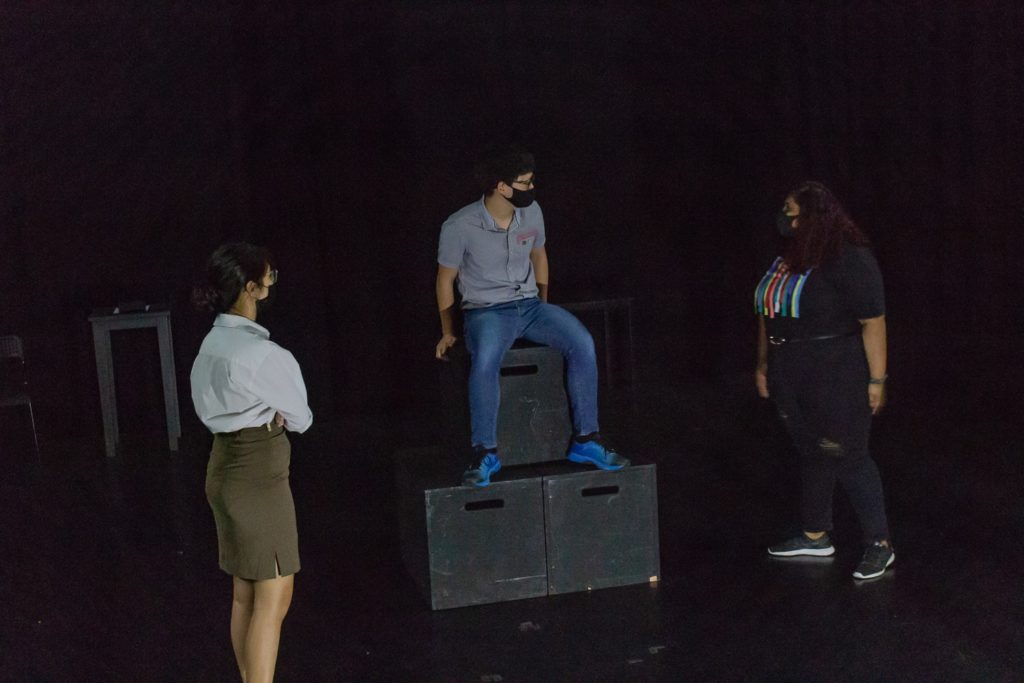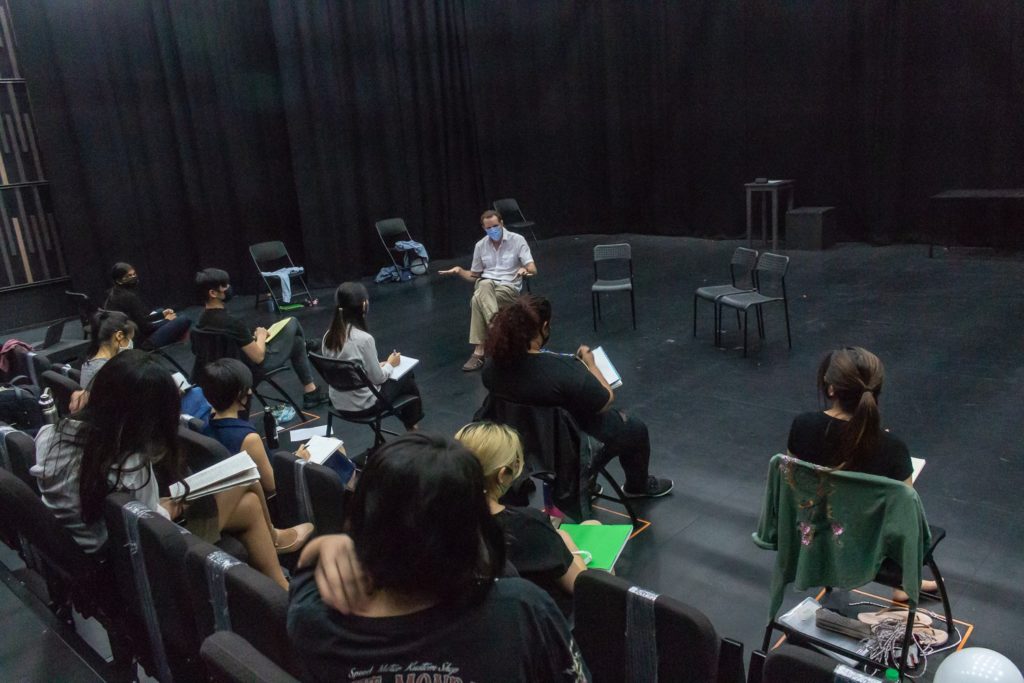Yale-NUS students explore their creative and collaborative sides in the Theatre-Making Laboratory
 Yale-NUS College Lecturer of Humanities (Theatre) Jonathan Vandenberg taught a new course titled Theatre-Making Laboratory last semester. Image taken by Glen Ang for Yale-NUS College.
Yale-NUS College Lecturer of Humanities (Theatre) Jonathan Vandenberg taught a new course titled Theatre-Making Laboratory last semester. Image taken by Glen Ang for Yale-NUS College.
Curious about what it takes to bring a theatre production to life? A new course at Yale-NUS College sought to satisfy students’ curiosity and interest in theatre, through a hands-on learning experience.
Observing a high level of interest amongst the College’s students in developing new theatre works, Yale-NUS College Lecturer of Humanities (Theatre) Jonathan Vandenberg decided to create the course titled Theatre-Making Laboratory.
According to Mr Vandenberg, students gain exposure to different aspects of theatre, from playwriting to collaboration and devising through this course. The objective is to introduce students to a broad range of creative processes.
 The course Theatre-Making Laboratory exposes students to different aspects of theatre-making such as playwriting, collaboration and devising. Image taken by Glen Ang for Yale-NUS College.
The course Theatre-Making Laboratory exposes students to different aspects of theatre-making such as playwriting, collaboration and devising. Image taken by Glen Ang for Yale-NUS College.
“A second key objective of the course is collaboration. The skill of working together is one that absolutely transcends theatre, and I wanted my students to use this class as an exercise of goal-making, responsibility sharing, schedule building and process planning,” said Mr Vandenberg.
Arts and Humanities major Elle Cheng Li Ling (Class of 2023) shared, “One of the best parts of this class is the community. They have been super supportive and creatively challenging. My peers have honestly been the best kind of resource. As an artist, having people to give you fresh insights and stories to tell is essential.”
Besides individuals who have had prior formal experiences with theatre, Mr Vandenberg noticed that most of the students enrolled in the course to augment their liberal arts and science curriculum. This experimental, laboratory experience allows students to learn and draw from their individual fields and expand their cognitive capacities and capabilities.
What surprised him about his students was how seamlessly those who had not taken acting classes or had theatre experience before, caught on to the creative and collaborative process. “They were willing to jump in, take risks and invest in the process,” he said.
Psychology major Kyle Foo (Class of 2022) shared that before taking this class, he had no directing experience even though he was part of a few productions on campus.
He said, “What I find really special about this kind of course at Yale-NUS, is that everyone brings a different perspective to the table; different levels of experience, skill-sets and majors, all coming together to contribute to the diversity of the pieces that we create.”
For the final project, students were tasked with creating their own original performances for the One-Minute Play Festival. Each group had to choose their own devising process and collaborate with each other to produce a brand-new theatrical piece.
“The class didn’t feel like one, but rather felt more like an ensemble, a company of artists, rather than a class. It felt like I was going to the studio to see what these artists had created,” said Mr Vandenberg.
Elle, who wrote, directed and acted in her own piece, shared, “The creative process itself, from conceptualisation to execution for just one performance, was extremely long. A lot of decisions had to be made, and I needed to trust in myself, in terms of applying the skills and ways of thinking that I learned. The process of creating this final piece has been so fun and satisfying.”
“Outside of the class, I often find myself conceptualising and thinking. It’s like a constant process that has become embedded in my life now. I feel that I grew a lot from the class actually, both as an artist and as an individual,” she said.
After taking on this course, Kyle felt that “the experience of watching everyone’s final products together, pieces that they had put a lot of effort into was particularly exciting, especially with the range of ideas that were reflected in the performances.”
Sharing his experience teaching the course, Mr Vandenberg said, “Each project had a technique or a process that they’re learning. I evaluate them based on how much rigor and creative risk they apply to their work. Seeing their growth in this aspect has been an absolute joy and I’m genuinely going to miss all of the students now that the course has ended.”





